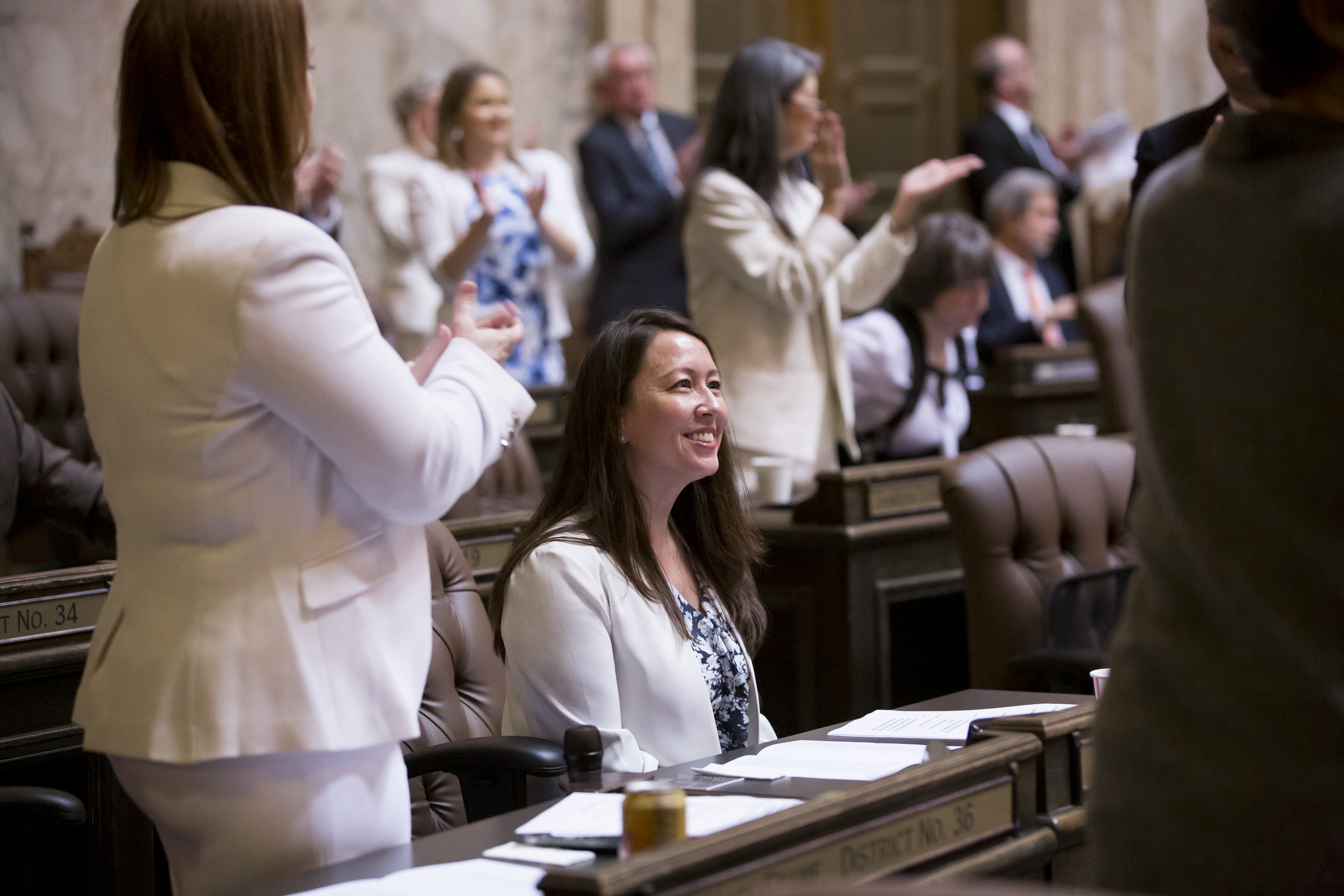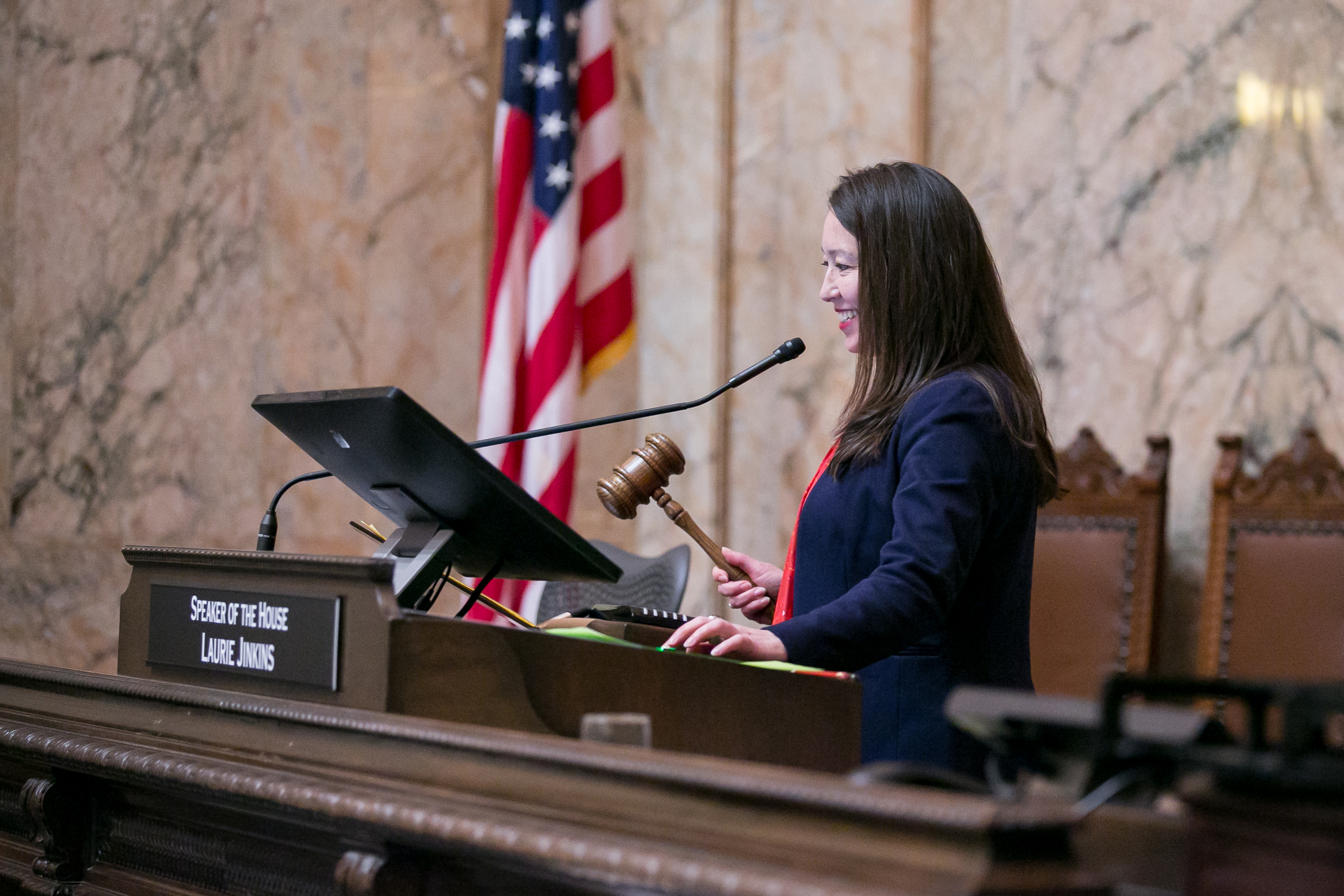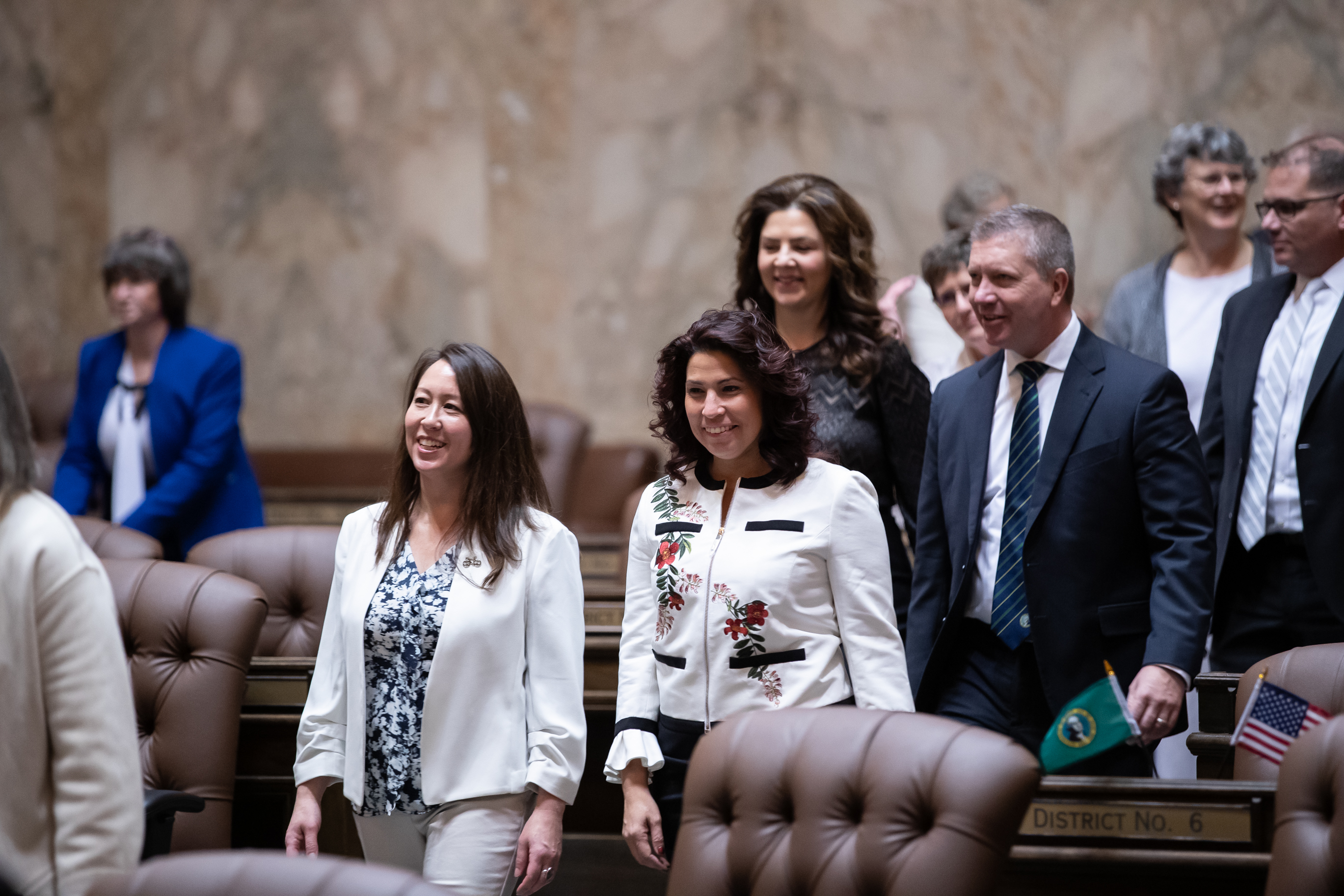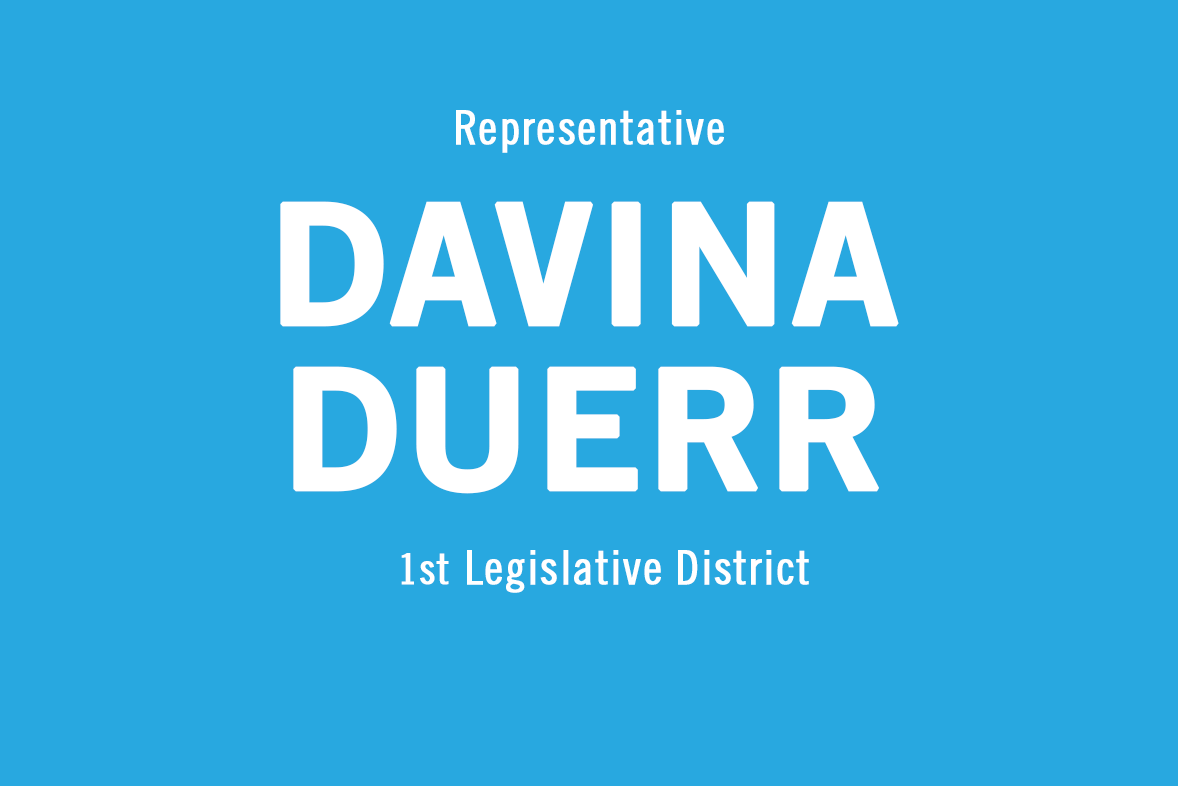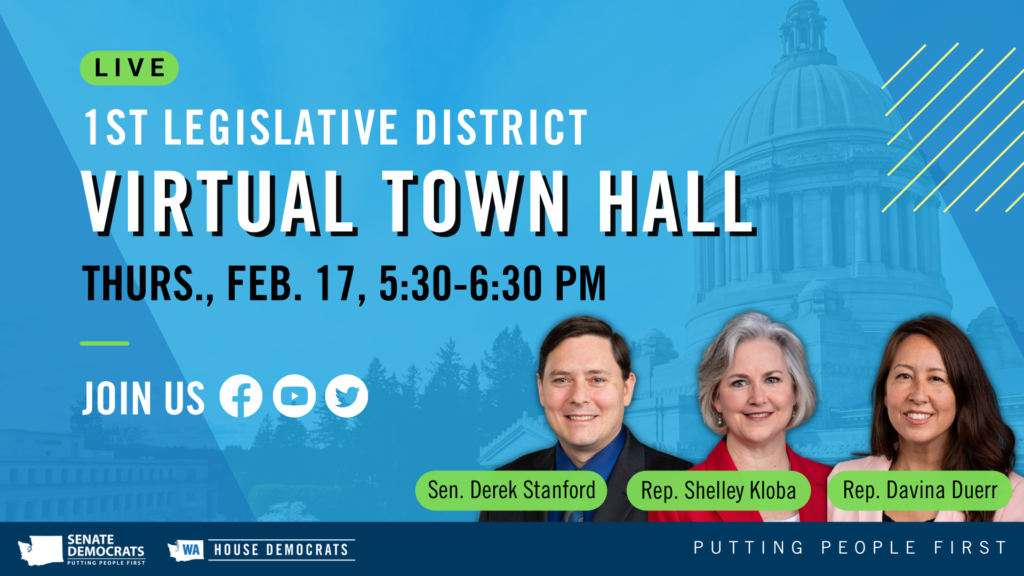Dear neighbors,
Where we live and work, and how we get between those two places—that affects not just our daily life, but our pocketbooks, neighborhoods, and planet.
I’m focused on legislation that address those fundamental issues so we can live in safe, walkable neighborhoods. To spend less time stuck in our cars and more time with our families and outside.
Here are eight bills related to this topic that I introduced. Seven of them passed the House and are now being considered by the Senate, and one passed a fiscal committee and now heads to the House floor for a vote.
The fiscal bill relates to funding for I-405/State Route 167, a major project with a funding shortfall.
It’s true that a mayor nicknamed me “The 405 Warrior Princess” for my years of fighting to get this project done. I’ll happily take that name if it helps us get solutions. This project will make a difference in our daily lives.
Fighting for I-405
The I-405 corridor is one of the most congested areas of Washington, and it’s still growing.
I wrote House Bill 1990 to help fill the $450 million shortfall so the I-405/SR-167 project can move forward to help reduce traffic.
This bill passed the House Finance Committee and is exempt from the policy cutoff rule.
Town hall meeting
Thank you to everyone who took the time to listen or ask questions during our 1st District virtual town hall meeting.
If you missed it, you can watch it by clicking on the graphic below.
Imagining a better future
In 2021 alone, Washington has experienced a catastrophic heat dome, rampaging wildfires, major flooding, a devastating drought, and other weather events exacerbated by climate change.
I wrote House Bill 1099 to help cities and counties plan for these events to protect lives, property, and taxpayer dollars. And as an architect, I know how important planning is to our future. What’s never planned never gets built—and what’s built can stand for generations.
Planning should be about improving the quality of life for our kids. That means reducing our contributions to climate change and planning our communities, so they are better protected against disasters like flooding, fires, and heat events. It also means creating livable, walkable communities as opposed to expensive urban sprawl.
This legislation passed the House and is now being considered by the Senate.
Fighting climate change
Methane is a hundred times worse than carbon dioxide when it comes to trapping heat and changing our climate. Landfills are one a large source of these methane emissions, so I write House Bill 1663 to address the problem.
This legislation requires large municipal landfills to install and operate gas collection and control systems to capture this methane and prevent it from getting into the atmosphere. Our kids deserve a livable future, and we must do what we can to reign in a planet that just keeps getting hotter and hotter.
Saving energy and tax dollars
We need to do our part to save energy, save taxpayer dollars, and save the planet. This is one small part of the solution. Here’s the problem: our state law regarding energy services performance contracts is 35 years old. So much has changed in those 35 years. There are so many innovations that have happened since then.
But the old statute stands in the way of making progress and being more efficient. House Bill 1768 updates that 35-year-old statute to save energy, reduce greenhouse gases, and save taxpayer dollars.
The new definition of public facility also opens new opportunities, such as electric vehicle charging infrastructure built on a nearby parking lot.
Building smarter
Most people are surprised to learn how much buildings contribute to greenhouse gases and our climate problem. The building sector is the second largest source of greenhouse gases.
Unlike other sectors, these emissions are going up instead of down. If we don’t take action, and do our part, climate change and extreme weather will only get worse, year after year. Buildings last 50 to 100 years, and the Legislature needs to plan for that lifespan.
House Bill 1770 makes buildings more efficient and reduce the demand for electricity and gas. It requires all new construction to achieve an 80 percent reduction in emissions and to be ready for solar panels by 2035.
Better planning
Growth management planning is difficult, but vital for growth that is responsive and responsible to our community and environmental needs.
House Bill 1241 adjusts the timeline for comprehensive planning and gives the tribes an avenue to engage with local government growth planning.
Ending a quirk in our local government laws
You’ve probably never heard of community municipal corporations. They’re an odd feature in our state law and only exist in a two places. The practical effect is people living in these areas essentially have more say, if not veto power, than other people living nearby—even if they live in a city and the city council votes on the matter.
I wrote House Bill 1769 to end this obsolete practice so all residents have an equal say in their community or city.
Reforming how we plan for shorelines
Under current law, Shoreline Management Act plans are adopted every eight years.
House Bill 1978 extends that to every 10 years to align with Growth Management plans to make it easier on local governments.
Keep in touch
Thank you for taking the time to read this, and to participate in your democracy.
I value your ideas, questions, and comments. Please get in touch!
